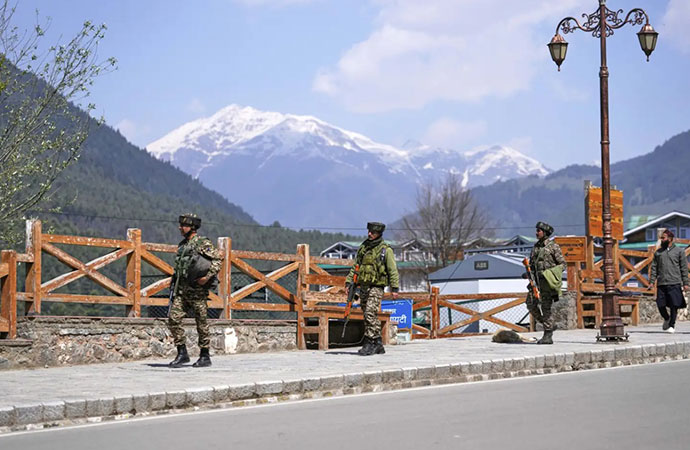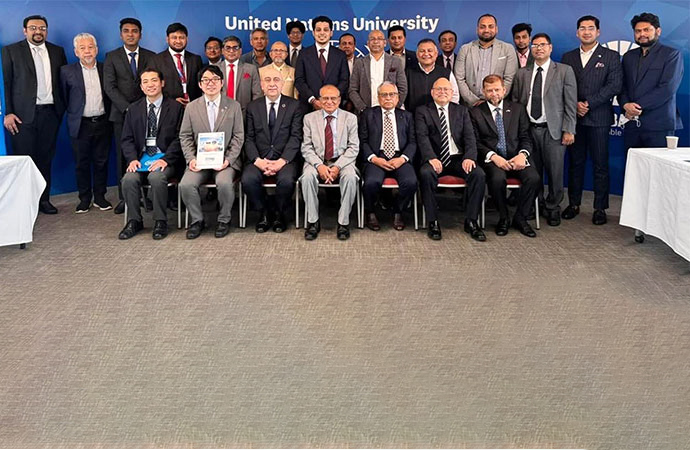Featured 1

Photo: AP/UNB
It was the worst terrorist attack to hit Kashmir in 25 years by one account - 26 tourists, 'staycationing' in a part of the restive region known as 'Little Switzerland', were gunned down mercilessly. Husbands torn from their wives, fathers from daughters. The utterly helpless humanity, in the foothills of the majestic Pir Panjal mountains.
Previous attacks have targeted military posts and convoys, in what is infamous as the °world's most highly militarised region". It led to troops from Pakistan and India exchanging fire overnight across the Line of Control in Kashmir, as the UN urged the nuclear-armed rivals to show "maximum restraint."
Even before a shot was fired, relations had plunged to their lowest level in years, with India accusing Pakistan of supporting "cross-border terrorism" (when they're polite). After gunmen carried out the worst attack on civilians in the contested Muslim-majority territory - no longer a state in India's federal structure, since 2019 - for a quarter of a century. The reverberations may well be felt throughout the Subcontinent.
India's army chief, General Upendra Dwivedi, led a high-level security review in Srinagar on Friday, two days after the militants carried out the attack, and managed to escape. The brazen assault, carried out in a mountain meadow near Pahalgam, has derailed the Indian government's claims of restored calm in the Himalayan territory as a result of the changes they implemented in 2019. The explosion of pent up grievances, that will inevitably provide the background to this week's attack, can be directly traced to the region's plight over 75 years now.
On the diplomatic front, India's foreign secretary, Vikram Misri, briefed envoys from 25 countries, including key G20 partners, Gulf states and, notably, China. Beijing's inclusion, despite strained ties, was seen as an attempt to build broader global consensus. India presented what it called "clear evidence of cross-border complicity". An obscure group calling itself the Resistance Front claimed responsibility for the attack. Indian officials say it is a proxy for the Pakistan-based Lashkar-e-Taiba or a similar outfit. Islamabad denied involvement, accusing India of failing to provide proof.
New Delhi suspended the Indus Waters Treaty signed in 1960, that had stood through three wars between the two rivals in the 20th century, including the one that birthed Bangladesh; announced the closure of the mainland border crossing, downgraded diplomatic ties, and withdrew visas for Pakistanis.
In response, Islamabad ordered the expulsion of Indian diplomats and military advisers on Thursday, cancelling visas for Indian nationals - with the exception of Sikh pilgrims - and closing the main border crossing from its side.
Pakistan also warned any attempt by India to stop the supply of water from the Indus River and its tributaries would be an "act of war".

























Leave a Comment
Recent Posts
Auspicious beginnings, but a l ...
The newly elected government of Bangladesh is now in office, and the e ...
Caught between tigers and pira ...
Over 10,000 fishermen in the Sundarbans have suspended their fishing a ...
Historic Chawk Bazar comes alive with iftar items on ..
Shaping Young Conservationists: School Conservation ..
Iran has said it has reached an understanding with t ..
New Finance Minister Amir Khosru Mahmud Chowdhury